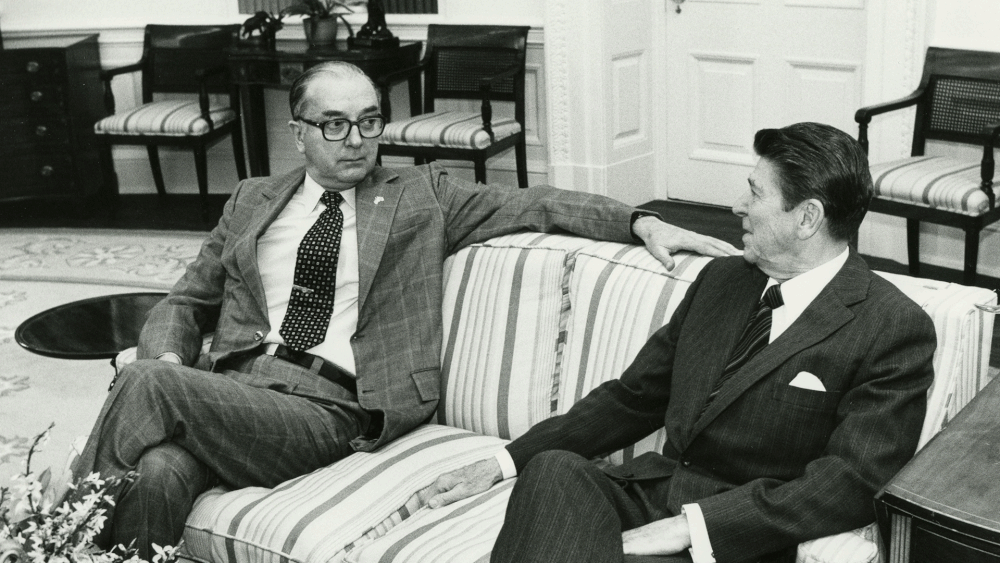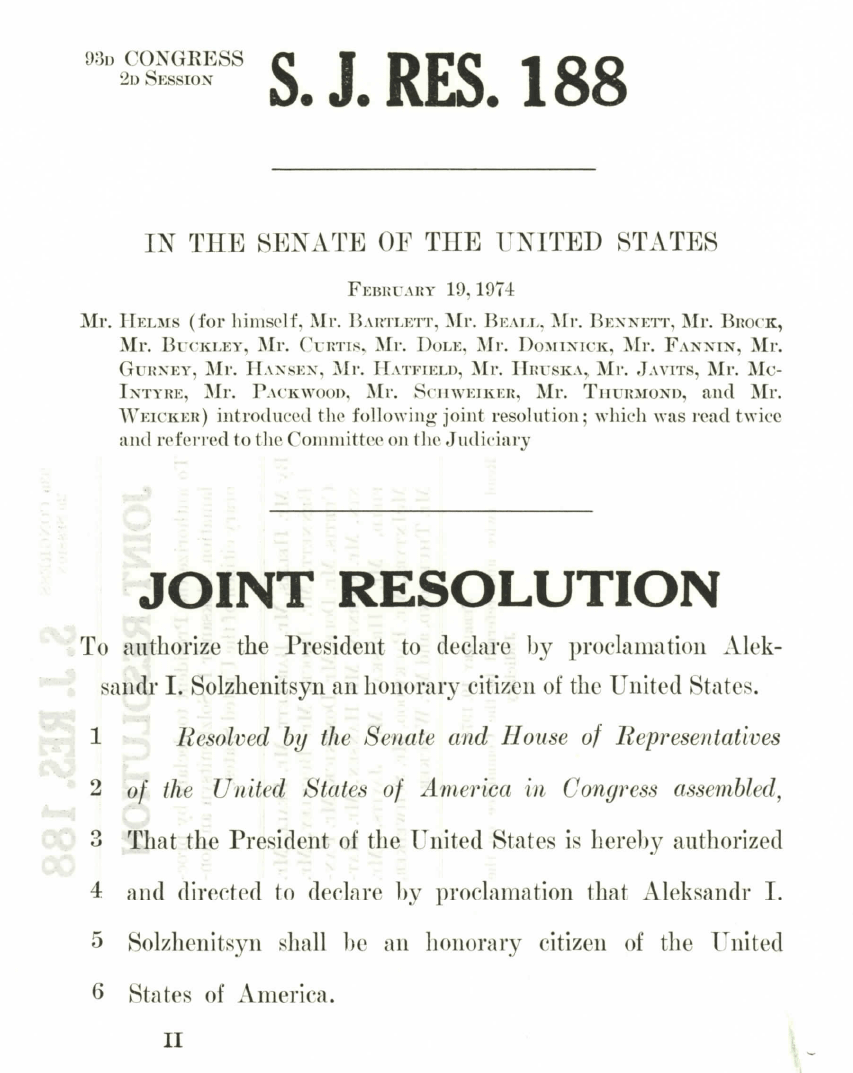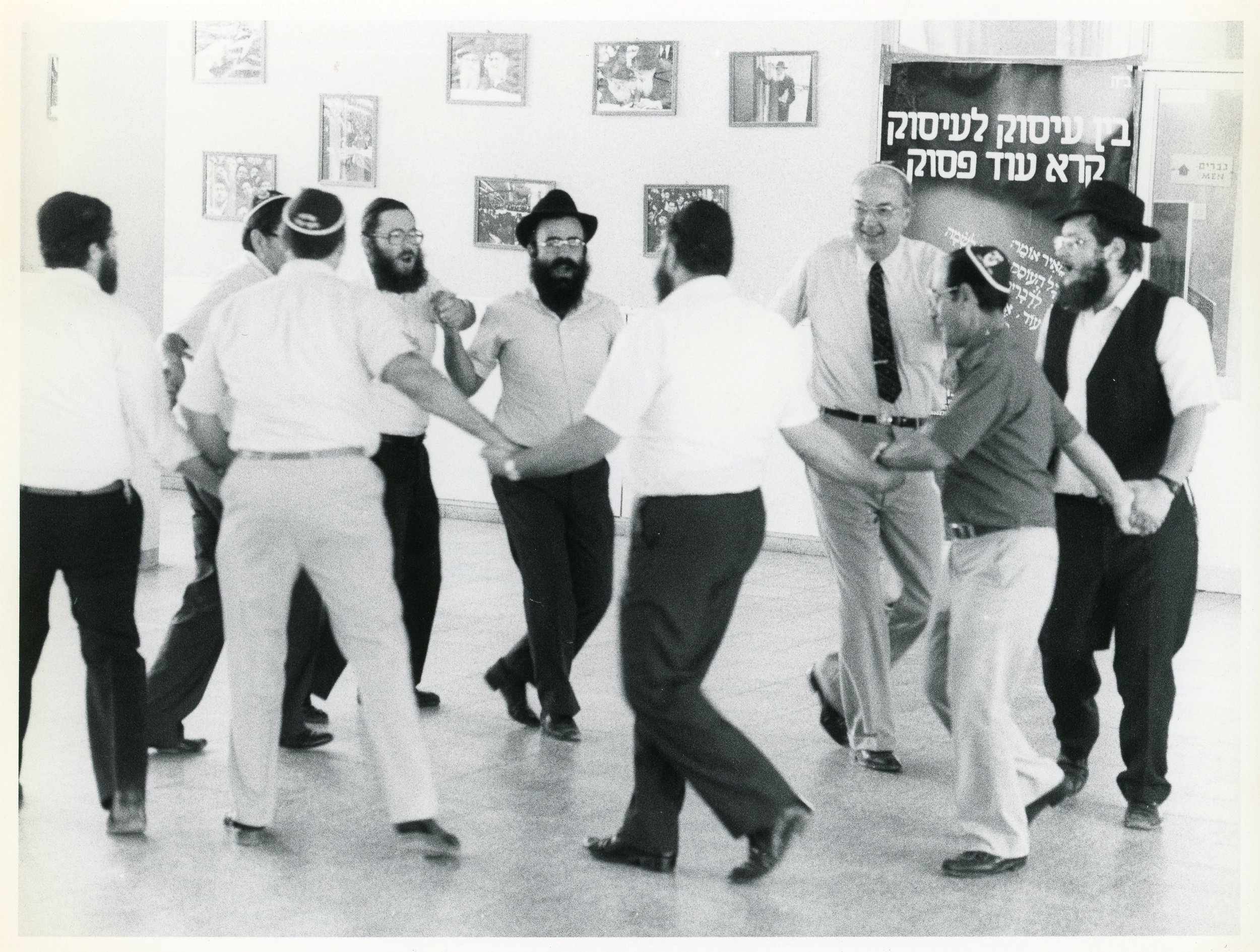tijd
in
puppet_djt
Смертельней вируса

Джесси Хелмс, легендарный республиканский сенатор из Северной Каролины, умер в июле 2008, не дожив до избрания Барака Обамы, которое перечеркнуло многое из достижений его политической карьеры. Если Джек Кемп с придумками про налоги и аборты служил мозгами консервативного движения, то Хелмс был его сердцем и сыграл не меньшую роль в победе консерватизма в лице Рональда Рейгана.

В феврале 1974, после высылки Александра Солженицына из СССР Хелмс внёс в Сенат резолюцию о том, чтобы присвоить Солженицыну звание почётного гражданина США. Госдеп под руководствам Киссинджера сопротивлялся попыткам возвеличить Солженицына и привезти его в США, чтобы не сорвать политику разрядки и подписание Хельсинских соглашений. Когда Солженицын в 1975 приехал в Вашингтон, президент Форд отказался с ним встречаться несмотря на настойчивые призывы Хелмса.

Эпизод с Фордом и Солженицыным настолько разозлил Рейгана, что стал последней каплей, которая подтолкнула его на то, чтобы выдвинуть свою кандидатуру на праймериз против Форда на выборах 1976. Избирательная кампания Рейгана на первых порах шла неудачно - он проиграл первые шесть штатов. Перелом наступил в Северной Каролине при активной поддержке Хелмса. После этого дела резко пошли в гору. Хотя к республиканскому съезду Рейган отставал в делегатах, была надежда уговорить некоторых из них переметнуться в его лагерь. Но молодой Пол Манафорт, который отвечал за делегатов Форда, держал оборону и не сдал позиции несмотря на усилия Роджера Стоуна, который работал на Рейгана.
Stone, working for Reagan, was empowered to try to find converts. He remembers traveling to Rhode Island, where he took the late Providence Mayor Vincent "Buddy" Cianci to dinner to try to persuade him to switch his vote to Reagan.
"I was trying to peel him off of Ford. I said, 'Think about it.' We finished dinner and he went right to a phone and called Manafort," Stone says now. "Manafort had everything tied down so tight we couldn't move anything. He kicked our ass. He knows how to negotiate, just like Trump."
Ford narrowly defeated Reagan at the convention thanks to the perks only an incumbent president could provide to cement delegate loyalty.
That early work established Manafort as a tactician to be reckoned with. He was organized, dogged and understood the arcane mechanics of the delegate system.
https://www.usnews.com/news/the-report/articles/2016-04-21/paul-manafort-the-count-tasked-with-saving-trump

Рейган проиграл праймериз, но выступил на съезде с зажигательной речью и отказался поддержать Форда на основных выборах. Это сделало его звездным кандидатом на выборах 1980. Всего этого не произошло бы без трамплина в Северной Каролине от Джесси Хелмса и его консультантов, прежде всего - Артура Финкельштейна. На выборах 1980 Стоун и Манафорт работали уже в одной команде.

Борьба Хелмса за перевыборы в Сенат в 1984 против популярного демократического губернатора Джима Ханта превратилась в самую дорогостоящую на тот момент сенатскую кампанию в истории ($26 миллионов). Хелмс выиграл с минимальным перевесом (меньше 52%), но доказал с помощью Финкельштейна два факта:
1. Для выигрыша необязательно пользоваться поддержкой большинства. Достаточно разбудить энергию и избирательную активность людей, подверженных сантименту «белых мужчин обижают» (как сказали бы в 2016, deplorables).
2. «Черный пиар» работает. Вместо того, чтобы пытаться повысить популярность своего кандидата, можно сбить популярность оппонента и снизить явку на выборы среди его потенциальных сторонников.
Для достижения первой цели Хелмс подбросил щепотку политической некорректности, устроив в 1983 сенатский филибастер против назначения дня Мартина Лютера Кинга национальным праздником. Для достижения второй цели он вёл долгую изнуряющую атаку на Ханта с использованием самых современных в то время технологий - рекламных роликов по телевизору и массовых рассылок по почте.
Helms pioneered the practice of launching television and radio ads much earlier in an election cycle than had previously been the practice, with the goal of politically wounding the opposition early and implanting negative impressions that would be difficult to shake from voters’ minds.
Such was the case in Helms’ bruising 1984 reelection fight against Gov. Jim Hunt, a rising Democratic star who many thought would use the Senate as a springboard to a White House bid. Helms’ campaign began advertising on television 18 months ahead of the general election and did not stop, except for a one-week cease-fire around Christmas 1983. Wrenn, the Congressional Club leader at the time, said in a 2005 interview that Republican political consultant Arthur Finkelstein advised there was little that could be done to change the negative impression of Helms held by some voters.
“The strategy that kind of evolved out of that was, ‘Look, we never can lift Helms up. We’ve got to bring Hunt down.’” Wrenn recalled. “It was really a brutal strategy, but it was really the only option we had left.”
https://www.politico.com/story/2008/07/helms-was-ahead-of-campaign-curve-011577
Ключом к победе стала пониженная явка среди черных избирателей.
To win, Hunt strategists calculated the two-term governor needed one-third of the white vote and a record black turnout. Historically, blacks have made up about 14.2 percent of voters in the state. Hunt aides figured that this would rise to 18.4 percent if the same percentage of blacks voted as whites -- roughly 7 in 10.
Hunt got 37 percent of the white and 98.8 percent of the black vote, according to VEP. But only 61 percent of registered blacks voted, down from 63 percent in 1980, perhaps because there were few close contests this year involving black candidates.
https://www.washingtonpost.com/archive/opinions/1984/11/18/jesse-helms-lesson-for-washington/89952868-aefd-4230-8f39-019e3cdfd0b9/
На выборах 1990 Хелмс использовал расовые мотивы еще более явно (как в рекламном ролике "Hands") и подавлял черную явку целенаправленно, используя "микротаргетинг".
The Justice Department lawsuit charged that the postcards were sent to 125,000 voters. It charged that postcards falsely told eligible voters they were not eligible to vote and warned that if they went to the polls they could be prosecuted for voter fraud.
The complaint said an investigation determined that black voters were targeted to receive 97 percent of the postcards.
Helms, R-N.C., was opposed in the campaign by Harvey Gantt, the black former mayor of Charlotte, N.C. The race had been considered close, but Helms won re-election to a third term by a comfortable margin. Helms received 1,080,208 votes to Gantt’s 974,701.
https://www.apnews.com/52589f9f339ea20d62e3c217fdecae1e

Во время избирательной кампании 1984 Хант критиковал Хелмса в частности за то, что тот занимал самую анти-израильскую позицию в Сенате, последовательно голосуя против помощи Израилю. На следующий год Хелмс поправил ситуацию, совершив поездку в Израиль. В поездке его сопровождала не только жена, но и Рой Кон, умирающий от СПИДа.
He could never stay still, he didn't have the attention span for it, so in the summer of 1985 he took off for Monte Carlo. When he got back, he took off in the August heat for Israel with Peter and two Republican senators, Jesse Helms from North Carolina and Chic Hecht, a backbencher from Nevada who was devoted to Roy. The Israeli military took their important guests off on automobile and airplane tours; they kept moving until eight o'clock in the evening.
All the while Roy was taking shots of Interferon, which, says Peter, not only was sapping his body but, worse, was affecting Roy's mind. "It wasn't so much a dementia, it was more disorientation and confusion. Sometimes he would all of a sudden realize he'd said something totally wacky." This would panic Roy, and then depress him, because the one thing he'd always prided himself on was his intellect, being fast on his feet. "How he ever struggled through that trip..." marvels Tom Bolan. "When he came back, he had had it."
http://www.maryellenmark.com/text/magazines/life/905W-000-035.html
Хелмс, пришедший к власти с помощью скрытого гея (и автора будущей победы Нетаньяху) Финкельштейна, был самым ярым противником "гомосексуальной заразы" в Конгрессе и активно боролся против федерального финансирования исследований о борьбе со СПИДом.
During the 1980s, as the AIDS crisis unfolded, Helms led the opposition in the U.S. Senate to increased federal funding for AIDS research. This was perhaps Jesse Helms’ greatest crime, and left real blood on his hands. Even a modest increase in spending could have saved tens of thousands of gay Americans who died horrible, painful deaths in the years before effective AIDS drugs were developed.
In 1987 he said, “Somewhere along the line we’re going to have to quarantine people with AIDS.” Helms’ uncaring response to the disease was explained by his tirade the next year against the bipartisan Kennedy-Hatch AIDS bill, when he claimed, “There is not one single case of AIDS in this country that cannot be traced in origin to sodomy.”
https://www.huffingtonpost.com/erik-ose/jesse-helms-shameful-lega_b_111791.html
В качестве протеста активисты надели на его дом гигантский презерватив с надписью “Helms is deadlier than a virus.”
OTD in 1991, AIDS activists unfurled a giant condom over the home of NC Senator Jesse Helms: https://t.co/2JoSg0dC2a pic.twitter.com/soRXBpMnod
- Leah McElrath (@leahmcelrath) September 5, 2016
Война Хелмса с геями была проиграна, но дело его живет. Начав свою политическую карьера с лозунга "White people, wake up!" в качестве помощника сенатора Смита на выборах 1950, продолжив ее собственным избранием в Сенат на волне Никсона в 1972, чтобы, по его словам, пустить под откос поезд либерализма ("to try to derail the freight train of liberalism") и переизбираясь еще четыре раза (с перевесом от 2% до 6%), Хелмс служил сердцем консерватизма. Он изменил историю, не только оказав ключевую поддержку Рейгану в 1976, но и научив республиканцев технологии победы на выборах, которая сыграла в очередной раз в 2016.
